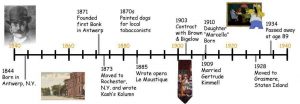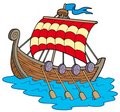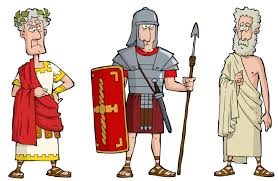History
What is the History Curriculum intention for the children at PTM?
Here at Pear Tree Mead Academy we aim to stimulate the children’s interest and understanding about the life of people who lived in the past. We teach children a sense of chronology so that the children are able to develop a sense of identity, and a cultural understanding based on their historical heritage. Through history lessons, they learn to value their own and other people’s cultures in modern multicultural Britain. By considering how people lived in the past, they are better able to make their own life choices today. We teach children to understand how events in the past have influenced our lives today; we also teach them to investigate these past events and, by so doing, to develop the skills of enquiry, analysis, interpretation and problem-solving. All these skills help to shape our modern day Historians!
Historical opportunities
Each year group organise a variety of workshops and school trips to provide hands on experiences. The children are immersed in learning through opportunities such as: re-creating Tudor life at Kentwell Hall, a number of interactive workshops, recreating the Great Fire of London, History dress up days and even time travelling through time to experience the Victorians. The reason behind these is not just for fun but to create meaningful experiences and to understand how past historical events have shaped our lives today.

How we implement History
History teaching focuses on enabling children to think as historians. We place an emphasis on examining historical artefacts and primary sources. We recognise and value the importance of stories in history teaching, and we regard this as an important way of stimulating interest in the past. We focus on helping children understand that historical events can be interpreted in different ways, and that they should always ask searching questions, such as ‘how do we know?’, about information they are given. We recognise that in all classes children have a wide range of ability in history, and we seek to provide suitable learning opportunities for all children by matching the challenge of the task to the ability of the child. We allow children to explore periods of time through artwork, literature and major historical events which often cross paths with many other subjects.

Assessment
Children demonstrate their ability in history in a variety of different ways. Younger children might, for example, act out a famous historical event, whilst older pupils may produce a PowerPoint presentation based on their investigation, for example, of voyages of discovery. Teachers will assess children’s work by making informal judgements during lessons. On completion of a piece of work, the teacher assesses the work and uses this information to plan for future learning. Written or verbal feedback is given to the child to help guide his or her progress. Older children are encouraged to make judgements about how they can improve their own work. The teacher will also complete an MME assessment sheet at the end of each topic, will highlight the levels the children have achieved and the next steps forward.

Barriers to learning
As a school we are aware that our children may encounter barriers to learning in any subject they are taught. With the introduction of the school branches the children should feel more equipped in these skills (resilience, aspiration and self-belief). We are ensuring that children are introduced to a range of life experiences through the opportunities offered within the history curriculum. Workshops for example offer first hand experiences as well as encouraging children to develop there speaking and listening skills in other settings. Our belief as a school is that our learning should not be confined to the classroom and therefore learning should often happen in the outdoors environment.
Key stage 1
Years 1 and 2 are focussing on changes over time. This will include sequencing events that have happened within their living memory and progress to describing these events. They will also be studying key historical figures such as Elizabeth I, Queen Victoria, Christopher Columbus, Neil Armstrong and Florence Nightingale. The children will be encouraged to ask questions and to use simple sources to find out more. Year 2 children will also learn about significant historical events, people and places local to them.
Lower Key Stage 2 – Year 3
In year 3 the children will be learning about the changes in Britain from the Stone Age to the Iron Age as well as taking a historical journey to the Roman Empire in 54BC. They will be able to develop their enquiry skills to find out more using primary sources and begin to use and understand a variety of language related to their topic.
Lower Key Stage 2 – Year 4
The Year 4 topics this year are the Anglo-Saxons and the scots. Within this area of history the children will begin to use historic terms related to the period of study, communicate and record historical learning in an organised and structured way, using appropriate terminology and begin to use sources of information in ways that go beyond simple observations to answer questions about the past.
Upper Key Stage 2 – Year 5
The Year 5 topics of study this academic year are the Vikings, the legacy of Greek culture and Ancient Greece – a study of Greek life and achievements and their influence on the western world. They will develop skills such as: comparing sources of information available for the study of different times in the past, provide an account of a historical event based on more than one source and give some reasons for some important historical events.
Upper Key Stage 2 – Year 6
Areas of study for Year 6 include: The achievements of the earliest civilizations – an overview of where and when the first civilizations appeared and a depth study of one of the following: Ancient Sumer; The Indus Valley; Ancient Egypt; The Shang Dynasty of Ancient China and Mayan civilization c. AD 900. They will develop skills such as, Describe a chronologically secure knowledge and understanding of British, local and world history, establishing clear narratives within and across the periods studied, understand that the type of information available depends on the period of time studied and present findings and communicate knowledge.
Follow the link below to the PTM History progression of skills. History curriculum objectives
Parent involvement
History is all around us and can be explored using a simple walk through town. However, if you feel more adventurous the Harlow Museum is a great way to get children involved in history. There are a variety of museums that are free of charge in and around London. If you were to venture out a little further then there are many Roman settlements close by including St Albans and Colchester. Below is a selection of museum near Harlow.
| Museum | Address | City | Category |
| Bishop’s Stortford Museum | South Road | Bishop’s Stortford | History & Anthropology |
| Harlow Museum | Muskham Road | Harlow | History & Anthropology |
| Copped Hall | Stables Courtyard Copped Hall Crown Hill | Epping | History & Anthropology |
| Epping Forest Visitor Centre | Nursery Road, High Beach | Waltham Abbey | Nature & Natural History |
| Epping Ongar Railway | Station Road | Chipping Ongar | Science & Technology |
| Hertford Museum | 18 Bull Plain | Hertford | History & Anthropology |
| Myddelton House Gardens | Bulls Cross | Enfield | Art & Design |
| North Weald Airfield Museum | Merlin Way | North Weald Bassett | Science & Technology |
| The Forge Museum and Victorian Cottage Garden | High Street | Much Hadham | History & Anthropology |
Inclusion and SEND children
Pear Tree Mead is an inclusive school where we cater for children with diverse needs, supporting them to access the curriculum and achieve personal goals.
Further Information
If you wish to find out about the National Curriculum please follow the link to the Government website.
